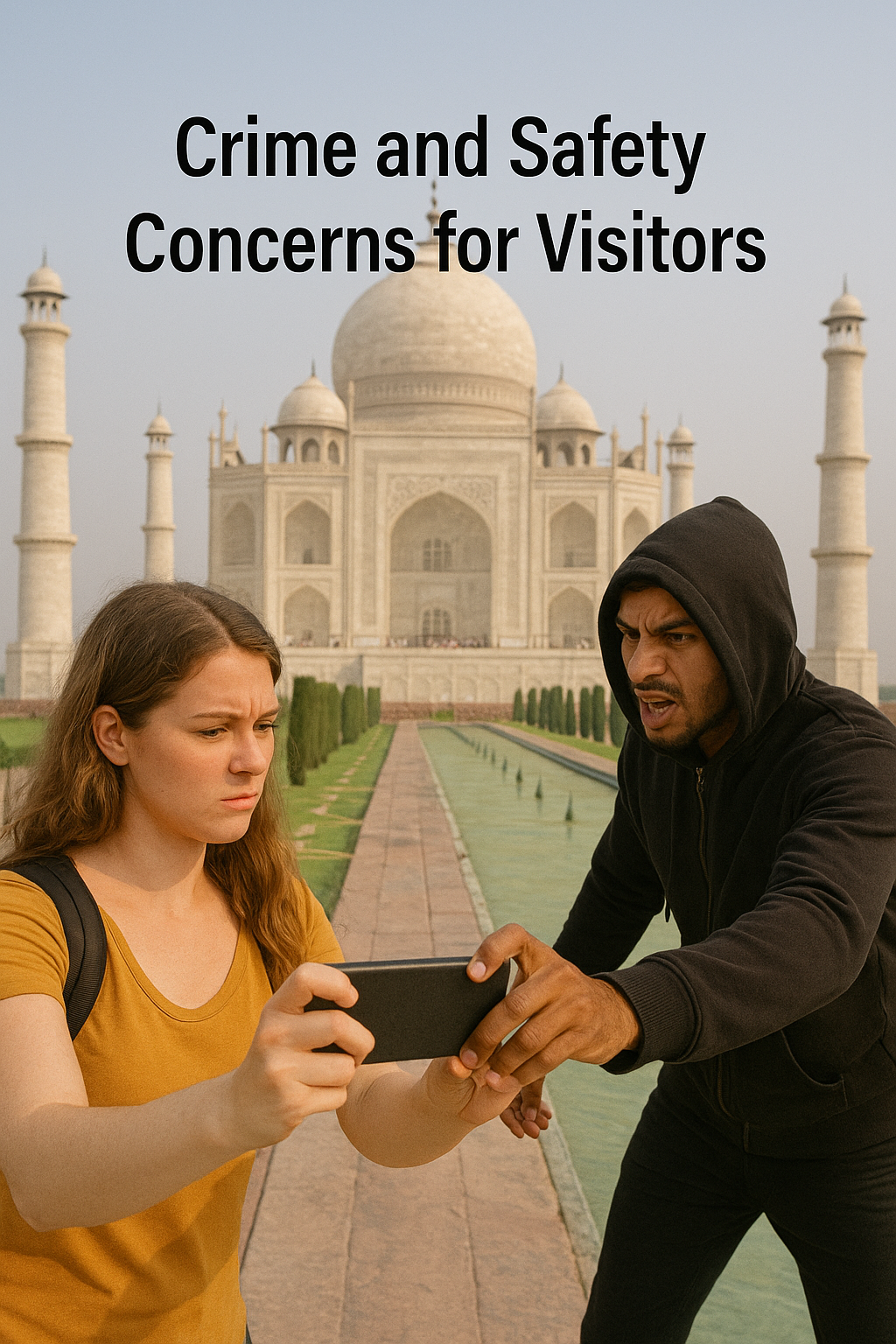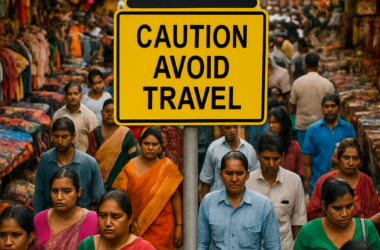India attracts millions of tourists every year with its rich culture, food, and spiritual heritage. However, a growing concern shadows this beauty—travel and crime. Increasing incidents involving tourists are being reported from both urban and rural regions. Scams, thefts, and even violent crimes have surfaced in places once considered safe.
In recent times, a South Korean YouTuber was harassed in Mumbai while live-streaming, sparking a national conversation on women’s safety. In another case, two foreign women were reportedly robbed at knifepoint in Delhi’s Paharganj area. Tourists have been drugged in Goa and Jaipur under the pretense of local hospitality. These incidents create a climate of fear and uncertainty.
While not all travel ends in trauma, the rise in tourist-targeted crimes demands attention. The experience of India should be magical, not marred by danger. This blog aims to explore how travel and crime are slowly becoming intertwined in India.
Scams and Deception: A Tourist’s Nightmare
Scams are often the first criminal interaction tourists face in India. From fake guides to rigged taxi meters, deception is widespread. Many foreigners visiting Agra have reported being overcharged for everything, from tickets to food. Some are even tricked into buying fake souvenirs under pressure.
A British couple recently complained of being overbilled at a five-star hotel in Delhi. Their complaints were ignored until media highlighted the issue. In Varanasi, pilgrims have spoken of fake priests demanding hefty donations for blessings. Such experiences dent the trust tourists have in locals.
Trains and bus stations are hotbeds for pickpockets. Foreign travelers are frequently targeted due to their unfamiliarity with surroundings. In Kerala, a German tourist reported losing his passport and valuables in a local ferry scam. He later admitted he had let his guard down, assuming the backwaters were safe.
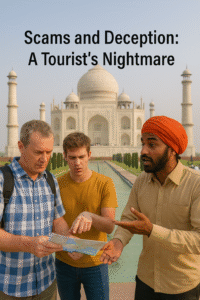
These are not isolated cases. The connection between travel and crime is becoming too frequent to ignore.
Safety for Solo and Female Travelers
Women travelers face unique risks when traveling in India. Street harassment, stalking, and even sexual assault cases have been reported across popular destinations. In 2023, a French woman accused a hotel owner in Pushkar of molestation. The accused was arrested only after public protests.
Solo travelers face more than just physical danger. Psychological trauma from persistent harassment can ruin their journey. In Bengaluru, a Japanese woman was allegedly followed for hours by a group of men on bikes. Her complaint fell on deaf ears until it trended online.
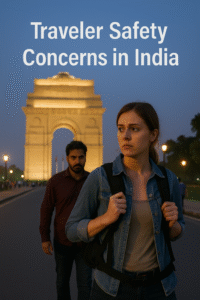
The lack of prompt police response adds to the problem. Many foreign nationals report difficulty in filing First Information Reports (FIRs). Some are even discouraged from pursuing justice, fearing it may “harm tourism.”
The rising number of such cases forces us to reflect. Are we doing enough to ensure travel does not translate into trauma? Clearly, travel and crime are no longer disconnected.
Digital Vulnerabilities and Cybercrime
Today, travel includes digital footprints—Wi-Fi access, online bookings, digital payments, and navigation apps. Unfortunately, criminals are also going digital. In 2024, a couple from Canada lost ₹5 lakhs after accessing a fake airport Wi-Fi in Mumbai. Hackers retrieved their bank details and withdrew money before they could react.
Fake tourism websites and fraudulent hotel bookings have also risen. A tourist from the UK reported paying for a resort in Manali that didn’t even exist. Police later uncovered a gang operating out of Punjab, duping people through fake Google listings.
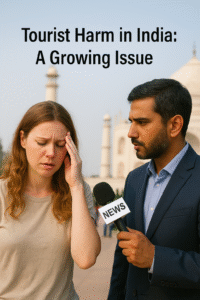
QR code scams are also common. Tourists scanning codes for taxi payments have been tricked into authorizing large withdrawals. Awareness is low, especially among older tourists who are unfamiliar with digital fraud.
Cybercrime adds a dangerous new layer to the issue. Physical safety was always a concern, but now digital safety is equally at risk. Again, travel and crime show their dangerous partnership.
Conclusion: A New Normal We Must Prepare For
Travel in India has always been an adventure filled with vibrant colors, ancient history, and soulful experiences. However, the surge in tourist-targeted crimes paints a stark contrast. From street scams to cyber theft, the dangers have grown beyond imagination.
The sad truth is, crime is no longer a distant possibility for travelers—it is a growing reality. The line between safe travel and dangerous risk is blurring. What we’re witnessing is not a passing trend but the beginning of a new normal.
Governments, local communities, and travelers must adapt. Improved surveillance, fast-track justice, and awareness campaigns are urgently needed. Tourists, too, must remain cautious, digitally aware, and culturally informed.
Let us not discourage travel, but redefine it with better safeguards. Travel and crime should not go hand in hand. But for now, we must accept the challenge, adapt to the risks, and protect the dream of exploration in India.
Utpal Khot
Copyright © Utpal K
1. If you share this post, please give due credit to the author Utpal Khot
2. Please DO NOT PLAGIARIZE. Please DO NOT Cut/Copy/Paste this post.
© Utpal K., all rights reserved.
Copyright Notice: No part of this Blog may be reproduced or utilized in any form or by any means, electronic or mechanical including photocopying or by any information storage and retrieval system, without permission in writing from the Blog Author Utpal Khot who holds the copyright.
